The Spiritual Symbolism of Incense in Different Cultures
Incense has been a vital component of spiritual practices across various cultures, serving as a bridge between the earthly and the divine. Its aromatic properties are not only pleasing to the senses but also imbued with profound spiritual significance.
This blog explores the spiritual symbolism of incense in different cultures, including Hinduism, Buddhism, Judaism, ancient Egyptian traditions, African practices, and Islamic traditions, while highlighting the role of padmini incense, incense sticks fragrances, and other aromatic elements.
The Spiritual Symbolism in Hinduism
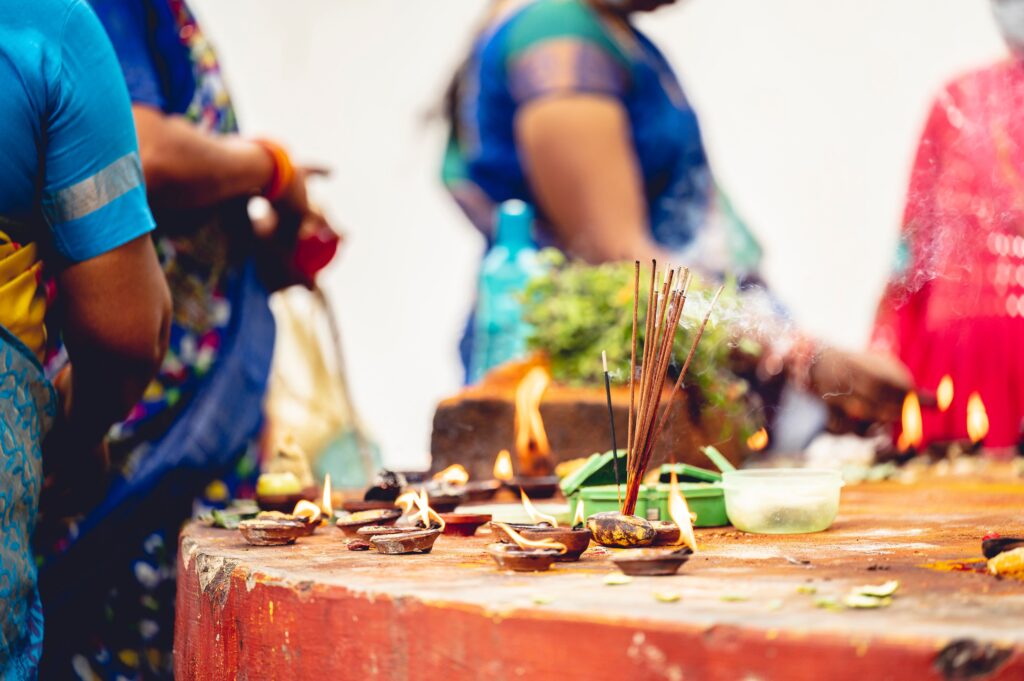
In Hinduism, incense plays a crucial role in rituals and daily worship.
- Purification and Devotion: The act of burning incense symbolises the purification of the mind and environment. The fragrant smoke is believed to cleanse negative energies and create a sanctified space for worship or meditation. Incense is offered to deities as a mark of respect, signifying the surrender of material desires.
- Connection to the Divine: The smoke from incense represents the element of air, facilitating a connection between earthly beings and divine realms. Different fragrances invoke specific deities; for example, sandalwood is often associated with Lord Shiva, while jasmine is linked to Goddess Lakshmi.
- Transience of Life: The burning incense serves as a reminder of life’s impermanence. Just as the smoke dissipates into the air, it signifies that life is fleeting and encourages devotees to focus on spiritual growth.
The Spiritual Symbolism in Buddhism
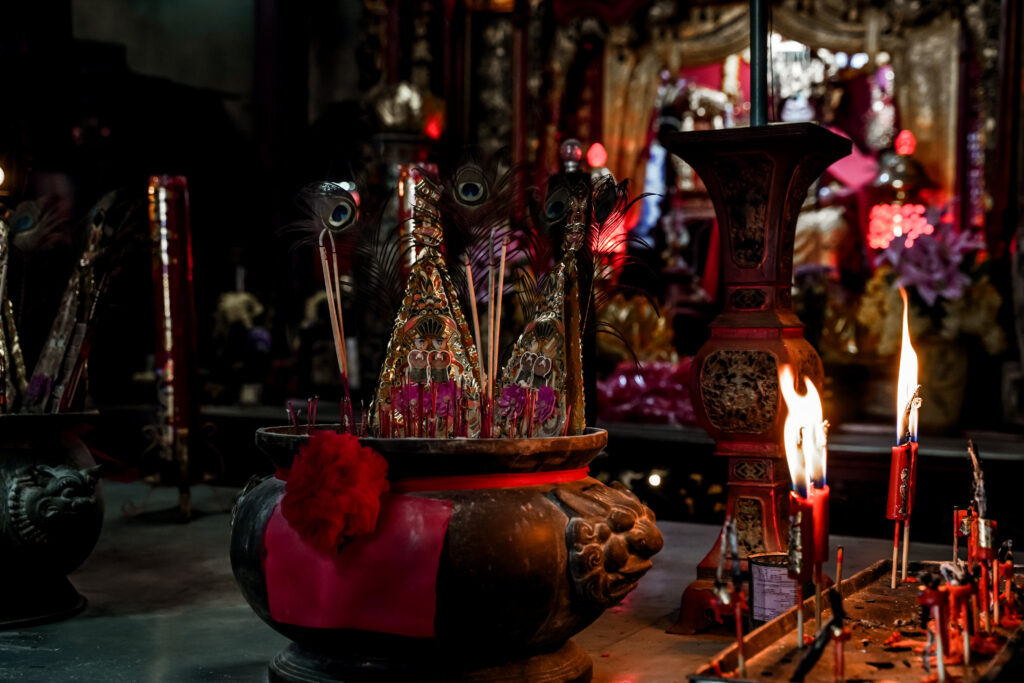
In Buddhism, incense holds significant meaning during meditation and rituals.
- Mindfulness Enhancement: The calming scents released by incense sticks, fragrances such as sandalwood or jasmine, help practitioners focus their minds during meditation. The fragrance serves as an anchor to remain present and centred.
- Offering to Deities: Burning incense is an offering to Buddhist deities, symbolising respect and devotion. The rising smoke represents prayers being sent into the universe, fostering a connection with higher spiritual realms.
The Spiritual Symbolism in Judaism
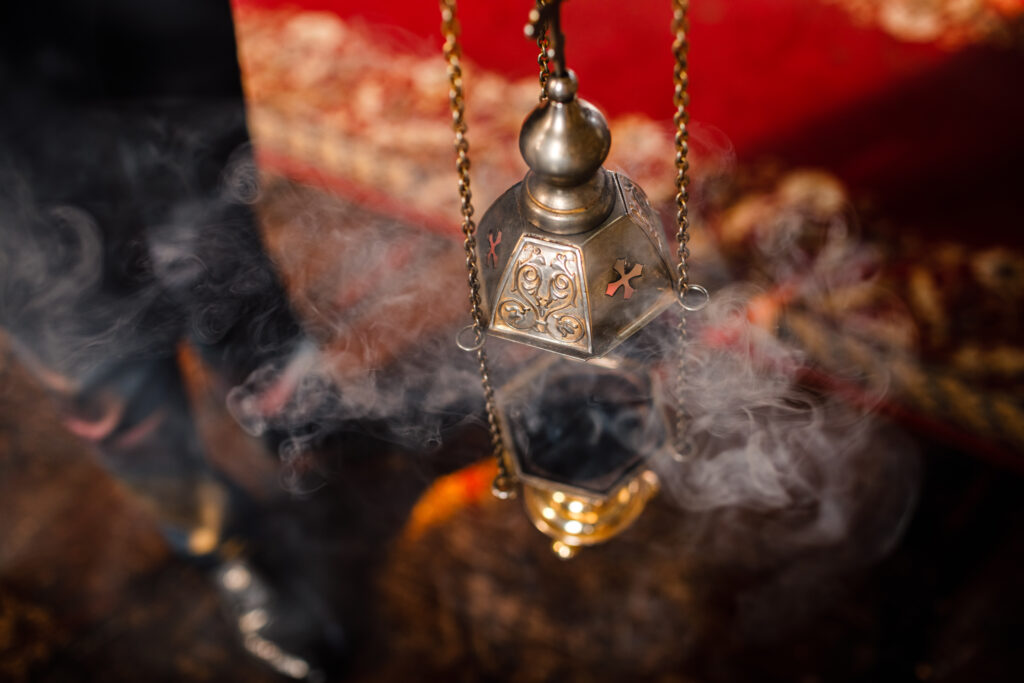
The use of incense has historical roots in Judaism, particularly during temple rituals.
- Symbolic Offerings: In ancient times, incense was burnt in the Second Temple as part of sacrificial offerings. The smoke was believed to carry prayers to God, symbolising an offering that was pleasing and acceptable.
- Ritual Significance: Specific formulas for creating sacred incense were provided in religious texts. The Book of Exodus describes how Aaron was instructed to burn incense morning and evening before God.
The Spiritual Symbolism in Ancient Egyptian Culture
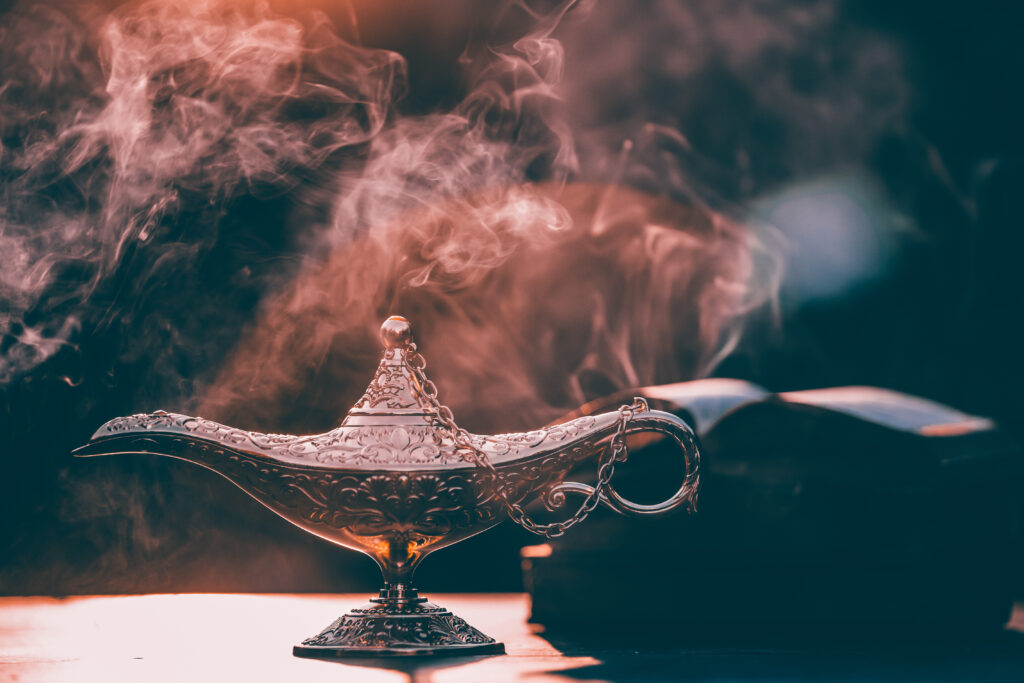
In ancient Egypt, incense played a significant role in religious ceremonies.
- Connection to Deities: Egyptians used various aromatic substances like frankincense and myrrh during rituals dedicated to their gods. The smoke was believed to carry offerings to the divine.
- Purification Rituals: Burning incense was seen as a means of purification for both individuals and sacred spaces. It was commonly used during funerary rites to honour the deceased and ensure their safe passage into the afterlife.
The Spiritual Symbolism in African Practices

African cultures have rich traditions surrounding the use of incense that reflect deep spiritual beliefs.
- Cultural Significance: In many African societies, burning incense is believed to bridge the gap between the physical and spiritual realms. It invites divine presence into spaces during rituals or communal gatherings.
- Ancestral Connections: Incense is frequently burnt to honour ancestors and seek their blessings. This practice reinforces community bonds while acknowledging lineage and heritage.
- Therapeutic Benefits: Beyond its spiritual significance, African incense is valued for its therapeutic properties. Traditional healers often utilise specific blends for their calming effects, promoting relaxation and emotional balance.
The Spiritual Symbolism in Islamic Culture
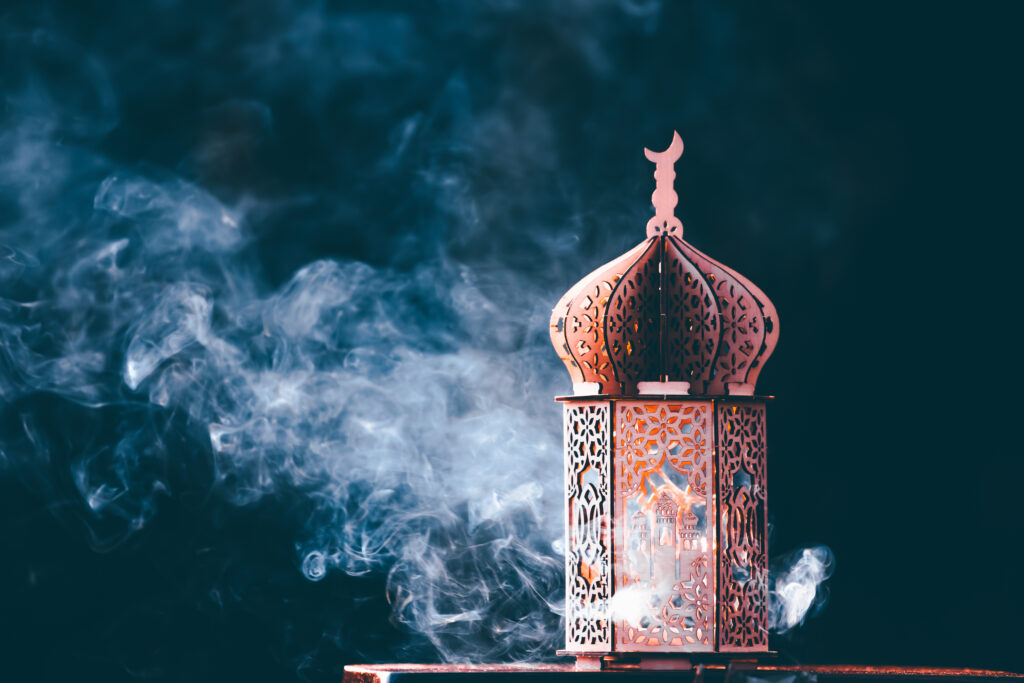
In Islam, the use of incense is deeply rooted in tradition.
- Symbol of Purity and Devotion: Lighting incense symbolises purification rituals. It is common to use it in mosques and homes to create a spiritually uplifting environment.
- Connection to the Divine: The rising smoke from fragrance sticks symbolises prayers ascending to God. During significant events like Ramadan, burning incense becomes even more pronounced as a way to purify the air.
Incense Practices Around the World
Various indigenous cultures utilise local herbs for cleansing rituals where burning incense serves to purify spaces from negative energies. In many tribal traditions around the world:
- Cleansing Rituals: Incense is often burnt during ceremonies intended to cleanse spaces or individuals from negative influences or spirits.
- Sacred Offerings: Many tribes view burning herbs or resins as offerings that invite positive energies or spirits into their communities.
Conclusion
The spiritual symbolism of incense is rich and varied across cultures. From Hindu rituals involving padmini incense and other aromatic substances to meditative practices in Buddhism, burning incense serves as a powerful tool for connecting with the divine.
By understanding these diverse cultural perspectives on incense stick fragrances, we can appreciate their role not only as a source of pleasant aroma but also as a profound medium for spiritual expression and connection. Whether through traditional rituals or modern practices, incorporating incense into our lives can enhance our spiritual journeys and foster a deeper sense of peace and mindfulness.
